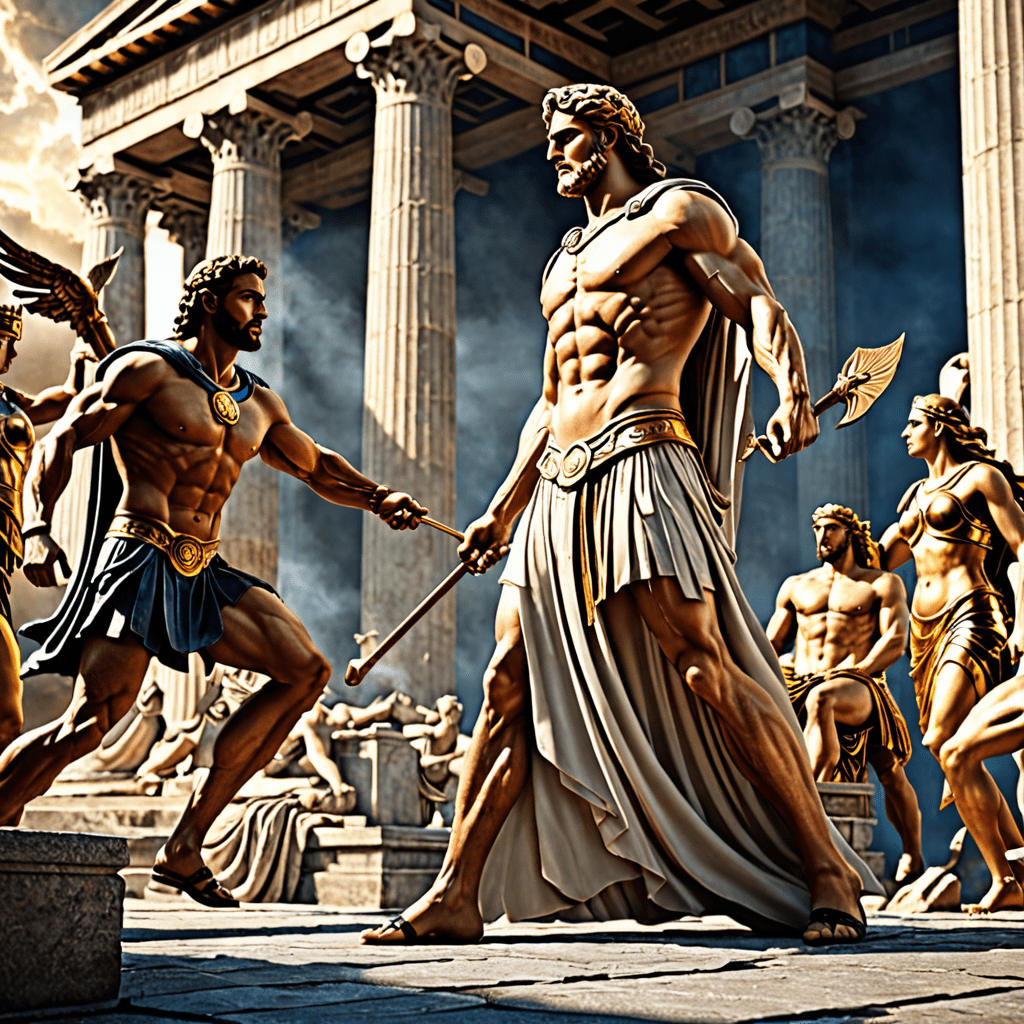Greek Mythology and the Concept of Justice
Justice was a central theme in the elaborate tapestry of Greek mythology. The ancient Greeks believed in a hierarchy of gods and goddesses who often exemplified the principles of justice through their actions and decisions. Let’s delve into how this concept of justice was portrayed in Greek mythology.
1. Justice in Greek Mythology:
In Greek mythology, justice was often depicted as a fundamental value upheld by the gods. The myth of “The Judgment of Paris” demonstrates the idea of divine justice, where Paris, a mortal, was tasked with judging which goddess was the most beautiful. His choice ultimately led to the Trojan War, showcasing how divine judgment can have far-reaching consequences.
2. Themes of Divine Retribution:
Another prevalent theme in Greek mythology related to justice was that of divine retribution. The story of Prometheus, who stole fire from the gods to give to humanity, highlights the concept of facing consequences for defying the divine order. Prometheus endured eternal punishment as a result of his actions.
3. Justice and Mortals:
Mortal characters in Greek mythology often grappled with the consequences of their actions, highlighting the importance of justice in the human realm. Oedipus Rex, for example, unknowingly fulfilled a prophecy that led to tragic events in his life, underscoring the theme of fate and justice intertwined.
4. Balance and Redemption:
The Greek concept of justice was intricately linked with the notion of balance and redemption. The myth of Persephone, who spends part of the year in the underworld, signifies the cyclical nature of justice and restoration. It showcases how balance is restored through the changing of seasons.
FAQ: Greek Mythology and the Concept of Justice
What is the significance of justice in Greek mythology?
In Greek mythology, justice was often depicted as a fundamental principle upheld by the gods to maintain order and balance in the world. It was essential for moral accountability, the protection of rights, and the punishment of wrongdoers.
How did Greek gods enforce justice?
Greek gods, like Zeus and Athena, were believed to be the guardians of justice. They judged the actions of humans and other deities, ensuring that each individual received their due punishment or reward based on their deeds.
Which mythological figures embody the concept of justice?
Mythological figures such as Themis, the personification of divine law and order, and the Furies, who pursued and punished evildoers, exemplified the different aspects of justice in Greek mythology.
What are some examples of justice in Greek myths?
Prominent examples include the punishment of Prometheus for stealing fire from the gods, the judgment of Paris leading to the Trojan War, and the fate of Oedipus for unknowingly fulfilling a prophecy.
How does the concept of justice in Greek mythology influence modern society?
The themes of justice, divine retribution, and moral accountability explored in Greek mythology continue to resonate in modern society. They inspire discussions on ethics, law, and the





